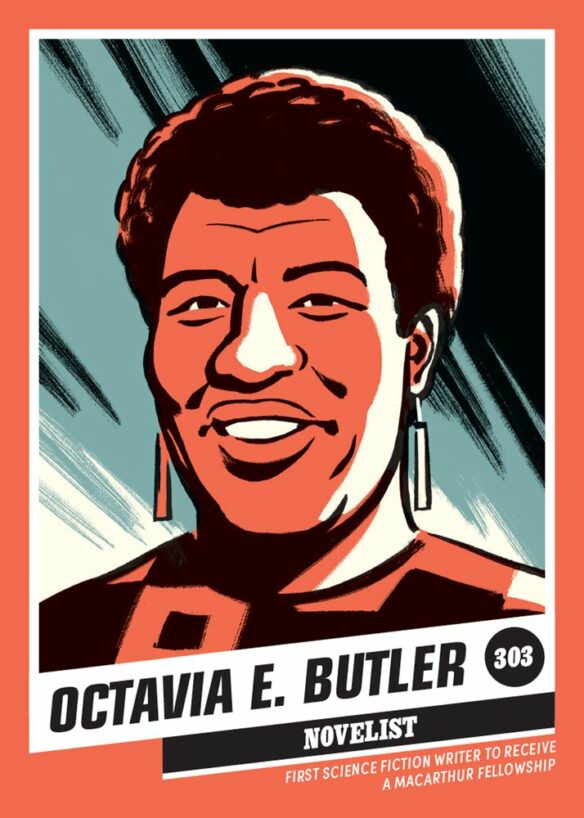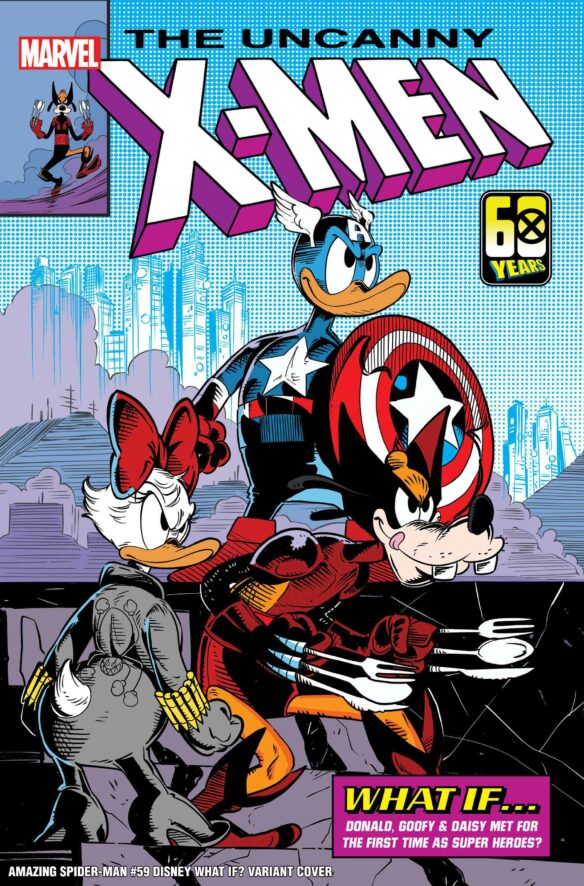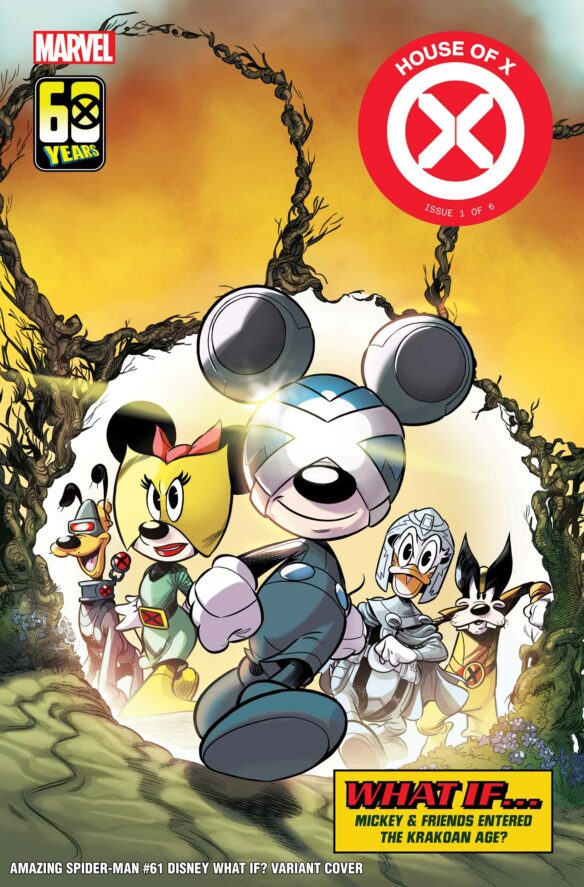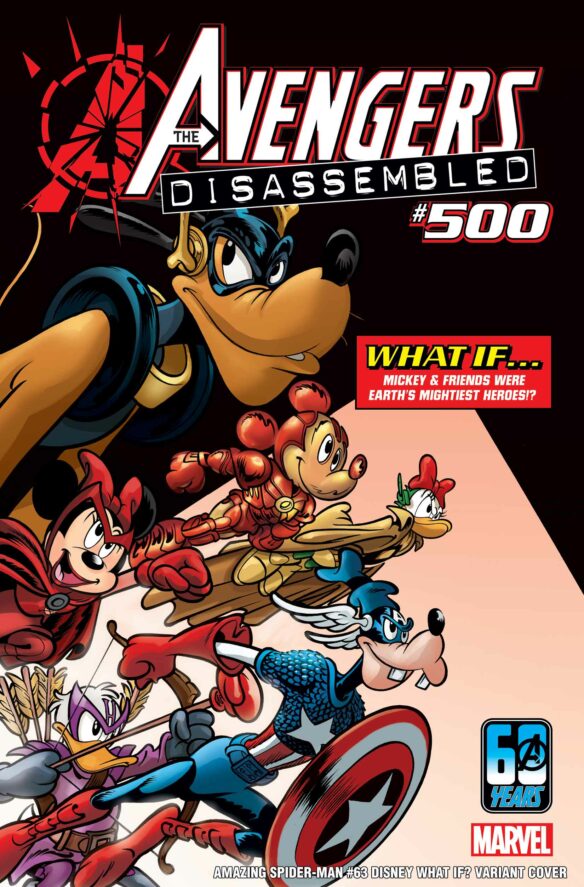(1) THE LIFETIMES OF MOANA. [Item by Mike Kennedy.] The OG Moana is going strong even as Moana 2 is setting box office records. “It’s Disney’s Biggest Surprise Hit—8 Years After Its Release” – in the Wall Street Journal (behind a paywall.) “We’ve now watched Moana for more than 1 billion hours. How did it become the No. 1 movie in streaming history?”
…“Moana” was released in 2016, but it’s much bigger on streaming than it ever was in theaters. It has been viewed for a total of more than 1 billion hours, according to Nielsen, which amounts to one person sitting through the movie 775 million times. Or watching “Moana” for 150,000 years straight.
And it’s somehow still getting bigger. It was one of the most-watched movies in 2020, 2021 and 2022 for U.S. audiences. Then we managed to watch more of “Moana” on Disney+ in 2023. It was both the No. 1 movie in all of streaming last year and the No. 1 movie over the past five years combined.
But it’s not just the biggest hit of Hollywood’s streaming age. It also happens to be the biggest surprise….
…Set in ancient Polynesia, “Moana” is the story of a brave teenage girl chosen by the ocean to save her island from a terrible blight. The daughter of the village chief, Moana hops on her boat and sets off on a voyage into the great unknown—the line where the sky meets the sea.
It was directed by Ron Clements and John Musker, who have decades of experience making some of Hollywood’s most successful movies, like Disney animated classics “The Little Mermaid” and “Aladdin.” Even they were stunned by the streaming success of their latest movie.
“I was like, ‘Whaaaaaaaat?’ ” [director John] Musker said. “I never would have guessed that.”
Nobody would have. This was a movie that finished 12th at the global box office in the year it came out, behind other animated movies like “Finding Dory,” “Zootopia” and “The Secret Life of Pets.” On the list of highest-grossing animated movies of all time, “Moana” is lower than “Kung Fu Panda 2” and “Big Hero 6.” It still won its opening weekend and made about $645 million worldwide, but “Frozen” and “Frozen 2” both made twice as much money….
… “The music can help keep the movie alive,” Musker said. “If it doesn’t have music, it’s harder to burn itself into your synapses.”
Especially when that music is a collection of bangers like the “Moana” soundtrack.
I f you have children under the age of 10, you’ve almost certainly heard “How Far I’ll Go,” “You’re Welcome” and the David Bowie-esque “Shiny.” Those earworms came from the mind of Lin-Manuel Miranda, the creator of “Hamilton,” who also wrote the catchy songs for “Encanto”—the No. 2 streaming movie in recent years behind “Moana.” (Miranda was not involved with “Moana 2,” which features music by the up-and-coming, Grammy-winning team of Abigail Barlow and Emily Bear.)…
(2) COUGHITO UPPO. “’Harry Potter’ star Rupert Grint faces $2.3 million tax bill” reports AP News.
Former “Harry Potter” film actor Rupert Grint faces a 1.8 million-pound ($2.3 million) bill after he lost a legal battle with the tax authorities.
Grint, who played Ron Weasley in the magical film franchise, was ordered to pay the money in 2019 after H.M. Revenue and Customs, the U.K. tax agency, investigated his tax return from seven years earlier.
The agency said Grint had wrongly classed 4.5 million pounds in residuals from the movies — money from DVD sales, TV syndication, streaming rights and other sources — as a capital asset rather than income, which is subject to a much higher tax rate.
Lawyers for Grint appealed, but after years of wrangling a tribunal judge ruled against the actor this week. Judge Harriet Morgan said the money “derived substantially the whole of its value from the activities of Mr. Grint” and “is taxable as income.”…
What would be an absurd claim under U.S. tax law dragged on in British courts for years before being ruled unallowable there, too. Of course, by now he’s had the use of the money for five or six years, and sometimes that deferral by itself amounts to a win for the taxpayer.
(3) A LAND BEHIND THE OVERCOATS. I guess there wasn’t any room left to dump on Narnia in the comments section here, so Alan Moore took his gripe to The Irish Times: “’The Chronicles of Narnia’ faces flak from legendary author”.
Alan Moore is the author of many hit books, including Watchmen, The Batman: The Killing Joke, V for Vendetta, etc. However, in his new novel, he takes aim at The Chronicles of Narnia.
During an interview with The Irish Times, the noted writer explains his fury toward the hit fable story while discussing his The Great When: A Long London Novel, which was how the characters adapted to the surroundings of the fantasy world they would end up in.
“I wanted the sections set in The Great When to feel as disorienting as it would do if you were suddenly in another world. One of the things I’m really tired of in current fantasy is how the kids go through the back of the wardrobe in Narnia and it’s not really a big deal,” the 71-year-old adds.
He continues, “People go into these worlds as if it was visiting Milton Keynes. No! You’d be booking yourself into psychiatric care! You’d have a complete mental breakdown!
(4) PKD VS. COLONIZERS. From an essay by Jonathan Lethem based on his talk at the Philip K. Dick Festival in Fort Morgan, Colorado, on June 15: “’Multiple Worlds Vying to Exist’: Philip K. Dick and Palestine” in The Paris Review.
…Dick’s use of the name New Israel in Martian Time-Slip is pretty stock. Dick traveled beyond North America only once, to a conference in Metz, France, where he delivered a legendary speech titled “If You Find This World Bad, You Should See Some of the Others”—baffling his French fans by opening an early window into the mystical, visionary search that would preoccupy him for the remainder of his life. Then he went home to Orange County, California. His impression of Israel may essentially be derived from Leon Uris’s Exodus, or from some other heroic fifties representation; he principally employs the Israelis in Martian Time-Slip as an anonymous and implacable counterpoint to the abject ineptitude of the U.S. colonists—to highlight the haplessness of their attempts to farm and irrigate the harsh Martian desertscape. As in the excerpt above, the Israelis present a mirror for shame. This matches, of course, a typical midcentury U.S. liberal’s reaction formation, after the discovery of the German and Polish death camps: the Jew as shame trigger, with the survivors idealized for their resilience and strength….
… Those stories of colonization that uncover political implications that might matter in thinking about Palestine are, of course, those in which an indigenous population exists before the arrival of Dick’s settler population. The most disturbingly relevant, by far, is Martian Time-Slip. This isn’t because of the presence of the Israeli settlement, though that does feel like a tell—a stray signifier that also functions as a kind of neon arrow directing us to pull off the road and pay attention. It’s because in this novel, the indigenous Martian population—they’re called Bleekmen—aren’t even aliens. They’re nomadic foragers capable of interactions with the settlers on a variety of human-to-human levels: linguistic, professional, and sexual. They are specifically defined as human; they arrived and naturalized to Mars at some unspecified earlier time. However, their marked cultural differences, and their deep acclimation to the conditions of Mars, allow the Earth settlers a margin for apartheid exclusion based on a muddling of the notion of the “alien” and the “human”—or, to be more precise, these qualities allow the settlers to affirm a population’s humanity while systematically violating their human rights….
(5) THE QUEEN. [By Steve Green.] British-Nigerian author Nuzo Onoh, who last year received a Bram Stoker Award for Lifetime Achievement, was profiled on the BBC World Service programme Outlook. You can listen to it here: “The rebel who became ‘Queen of African Horror’”.

British-Nigerian author Nuzo Onoh wasn’t good at school; she rebelled against her parents and was beaten often as a child. Her home in south-eastern Nigeria was believed to be haunted and during the civil war, she and her siblings were regaled with ghost stories to distract them from the violence. She toed the line as an adult, becoming a lawyer like her father, but when he died Nuzo’s passion for writing took hold. Stories inspired by Igbo rituals and the spooky happenings of her childhood began to flow vividly from her pen. But when Nuzo tried to sell her tales, she discovered no one had written anything quite like her. She was determined to carve a space for African horror writing, and went on to win the industry’s most prestigious award. Her new book is called Where the Dead Brides Gather.
Frenchman Joseph Redon also has a burning passion, in a very different niche. His love of Japanese video games led him to leave his native France for Tokyo, where he’s built one of the biggest collections of retro Japanese video games in the world. Outlook’s Emily Webb visited him at his home in Tokyo’s suburbs. This interview was first broadcast in 2016.
(6) TRENT ZELAZNY (1976-2024). Author Trent Zelazny, youngest son of Roger Zelazny, died November 28. His sister, Shannon, told Facebook readers he died of acute liver failure, at a time when he was already recovering from the effects of a stroke:
This past September, he had a cerebellar stroke which took away his ability to walk. Fortunately, his personality and memory remained intact, and he could still speak and eat. He was still “my brother” and was making remarkable progress learning how to walk again.
Unfortunately, he was struck down again with the separate condition of acute liver failure. He went to the hospital last night, and tonight, when he should’ve been blowing out the candles on his birthday cake, he made his way out of this world.
Trent Zelazny published his first short stories in 1999, “Hope Is an Inanimate Desire” and “Harold Asher and His Vomiting Dogs”. His work includes To Sleep Gently, Fractal Despondency, Destination Unknown, Butterfly Potion, Too Late to Call Texas, People Person, and Voiceless. His short story “The House of Happy Mayhem” received an honorable mention in Best Horror of the Year 2009, edited by Ellen Datlow. In 2009, his short stories were collected in The Day the Leash Gave Way and Other Stories.
In February 2012 Zelazny wrote his first short play, Not Any Little Girl, which premiered in Santa Fe, New Mexico in late April 2012. It later became an Australian bestseller.
(7) MEMORY LANE.
[Written by Paul Weimer.]
Anniversary: December 1, 2003 — Lord of the Rings: Return of the King film (premiered in NZ today)
By Paul Weimer: By the time the Return of the King premiered in December 2003 I was no longer living in California, and so did not have access to the Imax screen where I had seen The Two Towers, much to the envy of my friend Scott. But, since I was now living in Minnesota, Scott, his wife and I went to see it together on opening weekend in the U.S (the weekend before Christmas). As an even bigger Tolkien fan than I, it was a moral imperative. But it premiered on December 1, 2003 in New Zealand.
You know the story (although with the extended editions, just what is in The Return of the King the original can be a bit fuzzy). But it is the last (sorry, Hobbit) of the three great Middle Earth movies, and I (as well as Scott) were eager to see how our favorite scenes from the books were to play out. We were not disappointed. From the fight against the Witch-King, to Shelob, to the gorgeous Byzantine look to Minas Tirith, we were entranced. Sure, we had seen Fellowship, and Two Towers (Scott’s favorite, with the March of the Ents a particularly happy sequence for him). Return of the King looks the best of the three, showing the full evolution of Jackson’s craft and the actors completely and finally in their roles.
Don’t get me wrong, Tolkien addict as he was, afterward, Scott had some nitpicks, much of which I agreed with. The way Gollum “frames” Sam is an unnecessary addition to the book that adds drama in a place that it doesn’t need it. The five seconds of Faramir meeting Eowyn in the Houses of Healing was disappointingly short. Although we saw it in the Mirror of Galadriel, the lack of a real Scouring of the Shire disappointed us. (Remember, Saruman’s death doesn’t actually happen in the original movie — Scott was convinced Saruman was going to come back by the end).
And the movie is a bit long, and suffers from the “false ending” bit over and over. It plays that hand way too much for its own good, with similar music every single time. But that is a lot of nitpicking over a fantastic end to a fantastic trio of films. In our lifetimes, Scott and I got to see a cinematic masterpiece of a trilogy of films based on Lord of the Rings completed in Return of the King. How could we not be deliriously happy with that? I am sure, someday, someone will take another crack at the Lord of the Rings and try to film them. I’d like to see them try to reach the heights of Return of the King and the first two films. Someday.

(8) TODAY’S BIRTHDAY.
[Written by Paul Weimer.]
Born December 1, 1942 — John Crowley, 82.
By Paul Weimer: John Crowley is an author I had heard about for a couple of decades before finally sitting down with his work. I had heard great things about his work, and how he was an underrated master of fantasy. I had gotten a very big picture of my head of a giant of literature that had not gotten the reading or accolades he had deserved.
There was a period where I took the reading lists and ideas of Harold Bloom seriously and with forethought. I since have seen the weaknesses of his work and viewpoint (and it turns out he was very much a broken step in his treatment of women and his female colleagues). But once upon a time, I was very interested in what he thought was in the Western Canon (again this is when I thought a Western Canon was an important singular monolithic thing– I got better, honest). I admired him, because he was such a prolific and wideranging reader, like I am. Anyway, I tell you all this because he once wrote that Little, Big was one of the top five novels by a contemporary author in print. So I had heard of Crowley and Little, Big, as noted above, but Bloom’s comment was the final push I needed. I went and got myself a copy of Little Big, and devoured the large tome in a few short days going to College on the subway.
From there I branched out to Aegypt, and Great Work of Time (one of the oddest and gentlest time travel/timeline novels I’ve ever read–and it more than a little reminds me of Asimov’s End of Eternity–the society that depends on time travel coming into being uses someone to try and ensure that timeline does-but it all goes so very wrong. The novel is also a good indictment of British colonialism and imperialism. But I’ve got to love me a timeline novel with paradoxes and time loops gone askew.
But back to Little, Big. It really is, even after all of the other work I’ve read, the one that still moves me, the one that I can quote from, the one that feels the most mythic and resonant. Faeries, trying to fight against the dying of the light, a King Arthur-like figure in Frederick the Great… It’s one of the books of my heart. Really, it is true that the deeper you go, the bigger it gets. It’s not a happy book in many ways, there is an elegiac sadness to it that reminds me of recent birthday celebrant Poul Anderson’s fantasy. But it is moving and memorable for it.

(9) COMICS SECTION.
- Alley Oop avoids euphemism. But does not eschew surplusage.
- Animal Crackers makes another argument in favor of reading.
- The Argyle Sweater knows all the superheroes’ weaknesses.
- Rubes gets interrupted.
- A Tom Gauld doubleheader:
(10) SFF/H AUTHOR TRADING CARDS. A second series of McSweeney’s Author Cards is available from The McSweeney’s Store.

Now up to the plate! Series two of the author trading cards you’ve always imagined were possible but never dared to dream.
You’ve seen athletes get the trading card treatment for years. Maybe you’re still hanging on to your dad’s dog-eared Mickey Mantle rookie card and have been wondering, “When will my favorite Afrofuturist, Octavia Butler, get her own trading card?” or “Do they make these cards for writers like Lauren Groff, Donald Barthelme, or Amy Tan?” The wait is over, friends. McSweeney’s has begun publishing tradeable, collectible author cards. Each pack includes fifteen cards printed on high-quality paper, each featuring bios, trivia, little-known publishing stats, original illustrated portraits, and huge fun. (No chewing gum included.)



[Click for larger image.]
(11) BOOKS TO READ BEFORE THE BOMBS FALL. [Item by SF Concatenation’s Jonathan Cowie.] Moid over at Media Death Cult just loves the end of the world. This month he has a few book recommendations for us before the bombs fall. Some familiar reads are in the mix…
(12) ‘TIS THE SEASON TO WATCH. JustWatch, the world’s largest streaming guide, has used its internal data to determine the most loved holiday movies, and where you can stream them in the United States. They also determined the catalog size of the top streaming providers to see which has the most holiday themed titles.
Top 10 Most Streamed Holiday Movies: The most popular Holiday movie between 2023 and 2024 is Elf, followed by The Grinch, and Love Actually.

Catalog Size: Amazon Prime Video has the largest catalog of Christmas movies, with almost 40% of the total 631 available titles from streaming providers. Peacock has the second most Holiday titles, with 31%.

(13) VIDEO OF THE DAY. [Item by Mike Kennedy.] While this Pitch Meeting is for a Netflix movie that I’d never heard of, I now feel that I know absolutely everything I will ever need to know about it. And more.
[Thanks to Andrew Porter, John King Tarpinian, Chris Barkley, Rick Kovalcik, Steve Green, Cat Eldridge, SF Concatenation’s Jonathan Cowie, Steven French, Kathy Sullivan, Teddy Harvia, and Mike Kennedy for some of these stories. Title credit belongs to File 770 contributing editor of the day Tom Becker.]





